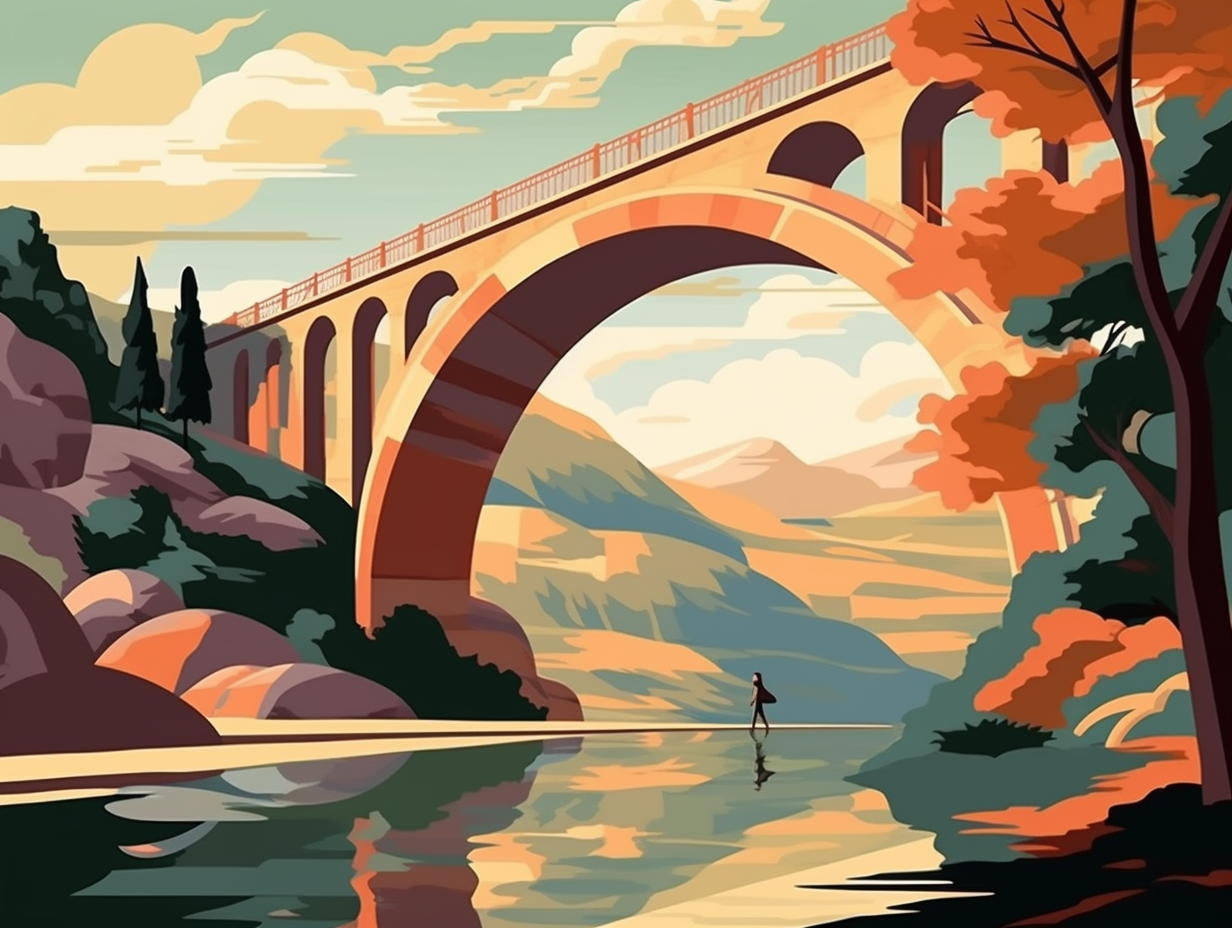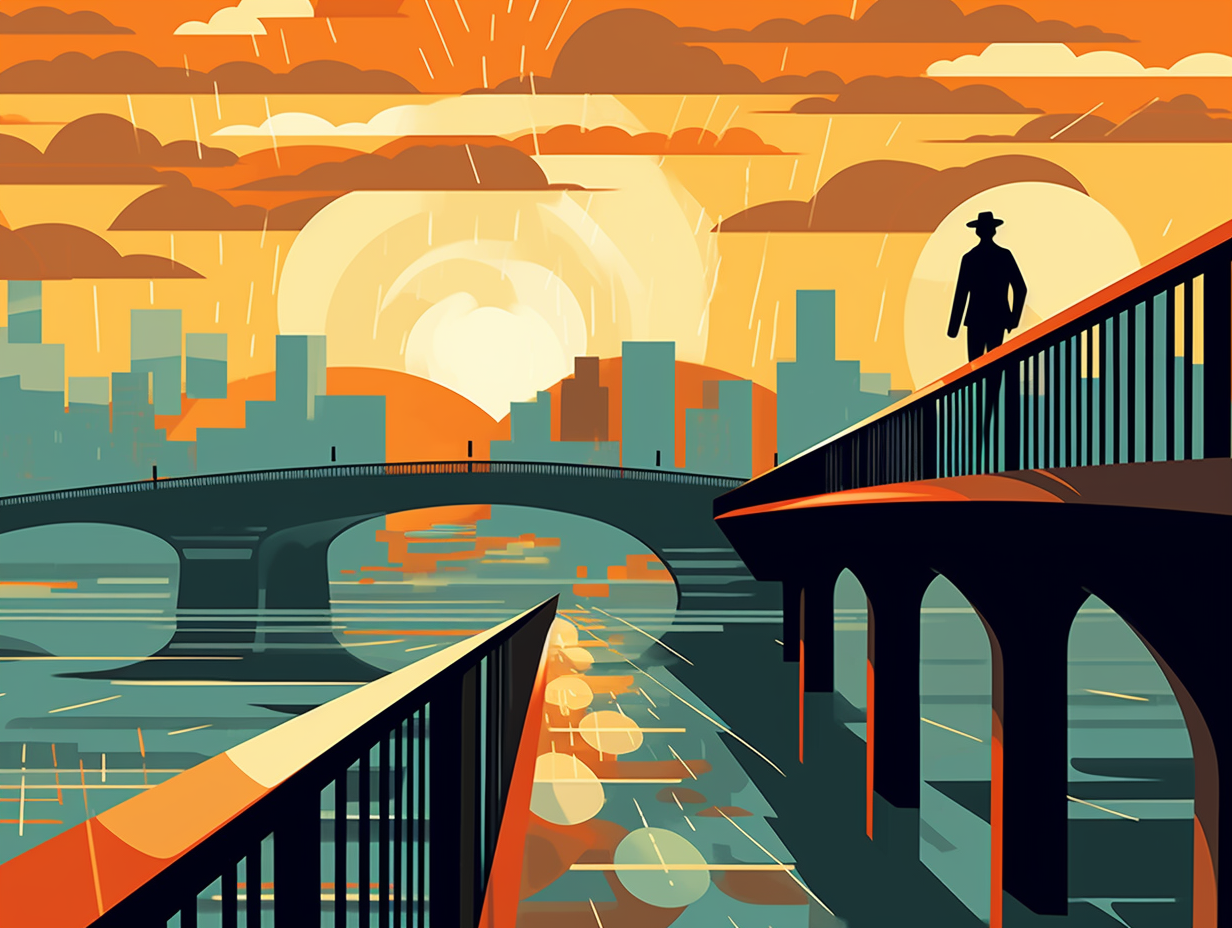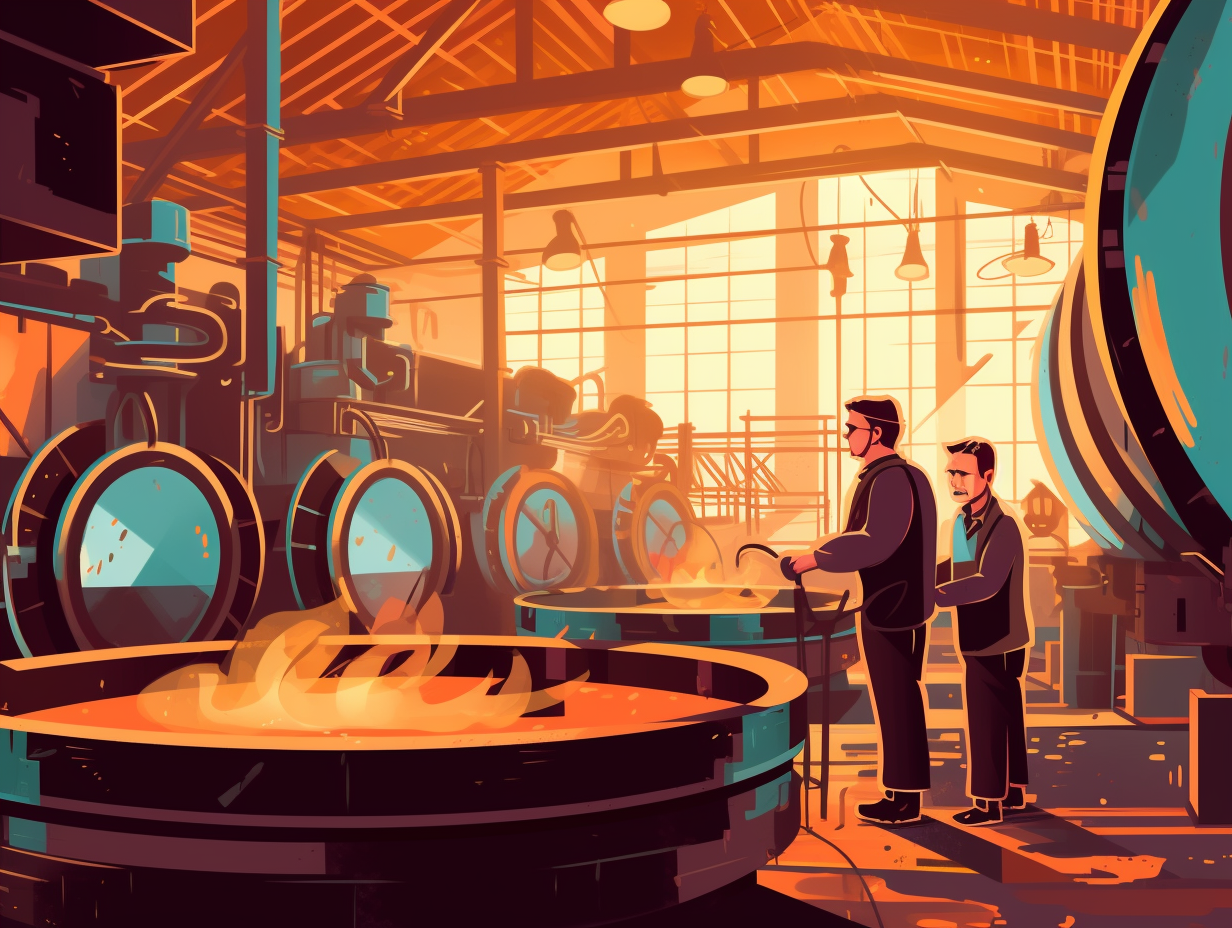9 Amazing Fun Facts About Arch Bridges You Won't Want to Miss!

1. Living Root Bridge
Who needs bricks and mortar when you can grow your own bridge: The Ummunoi Root Bridge in northeastern India is a rootin'-tootin' testament to living architecture, built entirely from the roots of Indian rubber trees over several centuries. Spanning up to 56 feet and strong enough to carry a small herd of elephants, these wacky yet practical bridges have been estimated to be around 500 years old – nature's own antique engineering marvel.
Source => grunge.com
2. Graceful Weight Distribution
Like a well-baked croissant with all the pressure on its buttery curves: arch bridges adroitly distribute weight along their elegant arches, pushing it out to sturdy abutments at each end. Whether it's ancient Roman masterpieces like the Pont du Gard made of stones, or modern marvels like the Natchez Trace Bridge with pre-cast concrete segments, these bridges flex their compression game to support their own weight and the traffic above.
Source => pbs.org

Did you know there was a water-powered musical instrument in the 3rd century BCE? Discover the fascinating history of the hydraulis, an ancient precursor to today's church organs. 🎵💧
=> Fun Facts about Engineering
3. Geological Gymnasts
Behold the unsung superheroes of the bridge world: arch bridges, taking the weight of the world on their strong stones and mastering the art of compression in a magnificent balancing act! These geological gymnasts skillfully distribute their burden, thanks to their spectacular ensemble of wedge-shaped stone units known as voussoirs and a star player, the keystone, holding the apex position: They've been gracefully supporting civilizations since antiquity, with iconic renditions in Visigothic and Moorish architecture, where voussoirs flaunt a flamboyant array of alternating colors, and even the ingenious Brits of the 18th and 19th centuries, who revolutionized elliptical arches with custom-built bricks to fit the voussoir bill.
Source => en.wikipedia.org
4. Zebra-striped Designs
If you ever wondered what zebras and Candy Crush have in common with bridges, look no further than the snazzy aesthetics of arch bridges: These eye-catching structures often feature voussoirs (think of them as the building blocks) in alternating colors, a design quirk called ablaq, which hails from Visigothic, Moorish, and Romanesque architectural traditions. Plus, thanks to some clever 18th and 19th-century British bricklayers, elliptical arches are crafted using brick voussoirs and thicker vertical mortar joints, resulting in bridges that boast both beauty and brawn.
Source => en.wikipedia.org

5. Springers in Action
Spring into action with this architectural tidbit: the first voussoir at springing level, adjacent to the skewback, is known as the springer – a key player in evenly distributing the weight of arch bridges to their supports, and not just a name for an energetic dog breed!
Source => theconstructor.org
6. Arch Bridge Power Couple
Arch bridges might just be the world's oldest power couple, standing together without needing the assistance of flying buttresses like some clingy, insecure suspension bridges: These architectural lovebirds rely on their own strength, channeling the weight of the bridge and all that pesky traffic onto their sturdy abutments at each end.
Source => en.wikipedia.org
7. Curve-a-licious Design
Who said arches are just for eyebrows and rainbows? Bridges want in on the fun too! Arch bridges strut their curve-a-licious design prowess: Their ingenious structure relies on the arch's curvature to distribute weight, with advanced tech like nonlinear p-delta analysis optimizing the design, considering flexibility, bracing, and girder size for the ultimate arched masterpiece.
Source => researchgate.net
8. Ponte Vecchio's Nine Lives
Like a cat with nine lives, the Ponte Vecchio just keeps on purring through floods, wars, and the occasional fashion faux-pas: This historic arch bridge in Florence, Italy has weathered disasters since the 10th century and was the only bridge across the Arno River left standing by Hitler's troops during World War II. Currently housing glittering jewelry shops, the bridge keeps up a centuries-old tradition dating back to the 16th century when only goldsmiths and jewelers were allowed to set up shop, earning its place as the glamorous, historic jewel in Florence's crown.
Source => sheilacunha.it
9. Rome's Gladiator Bridges
When in Rome, bridge as the Romans do: The Ponte Fabricio, a 2000-year-old arch bridge, stands strong to this day, credit to its masterful masonry arches that can absorb mammoth compressive forces, proving that the Romans built bridges like gladiators in togas!
Source => engineeringrome.org
Related Fun Facts




















